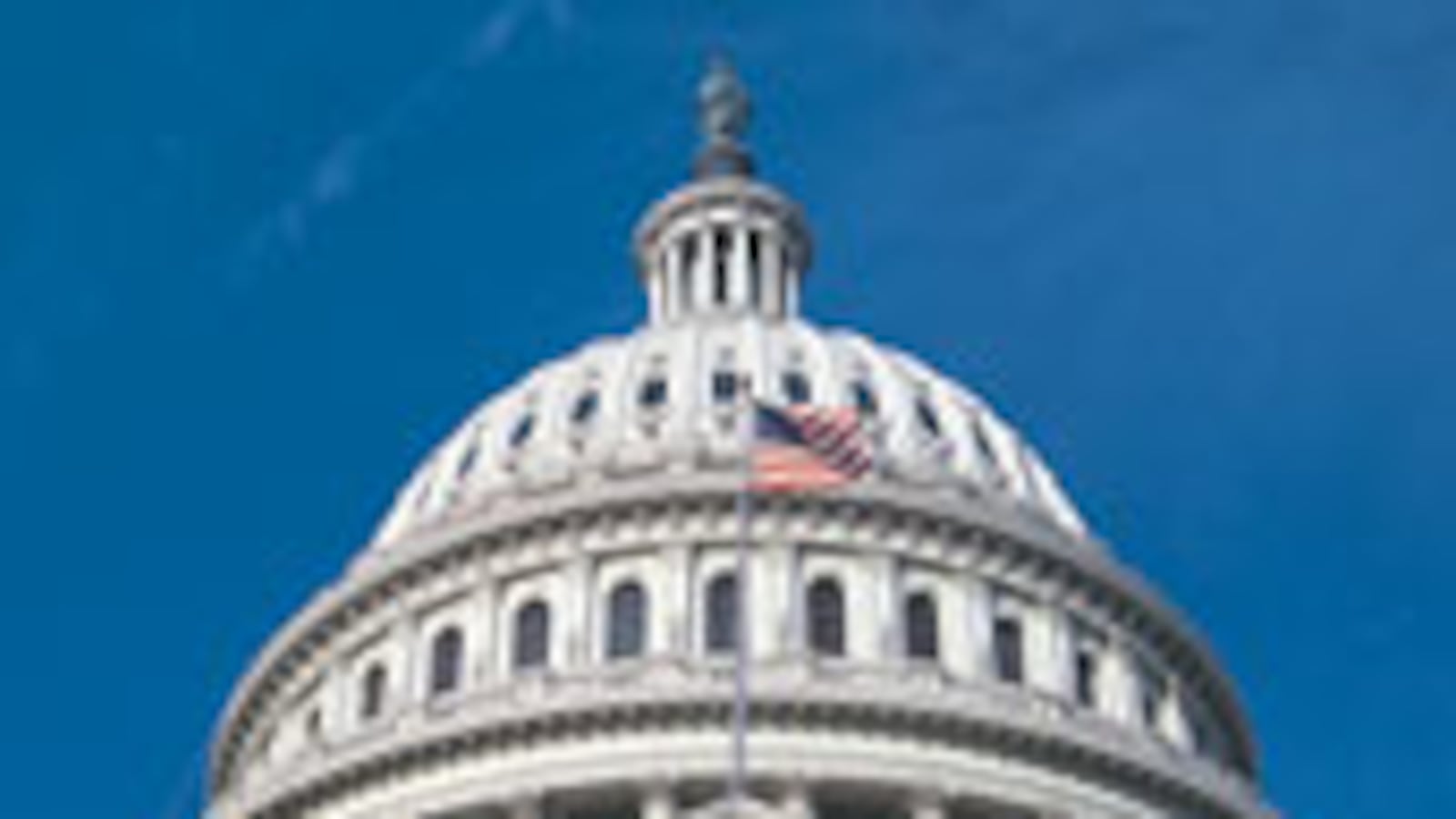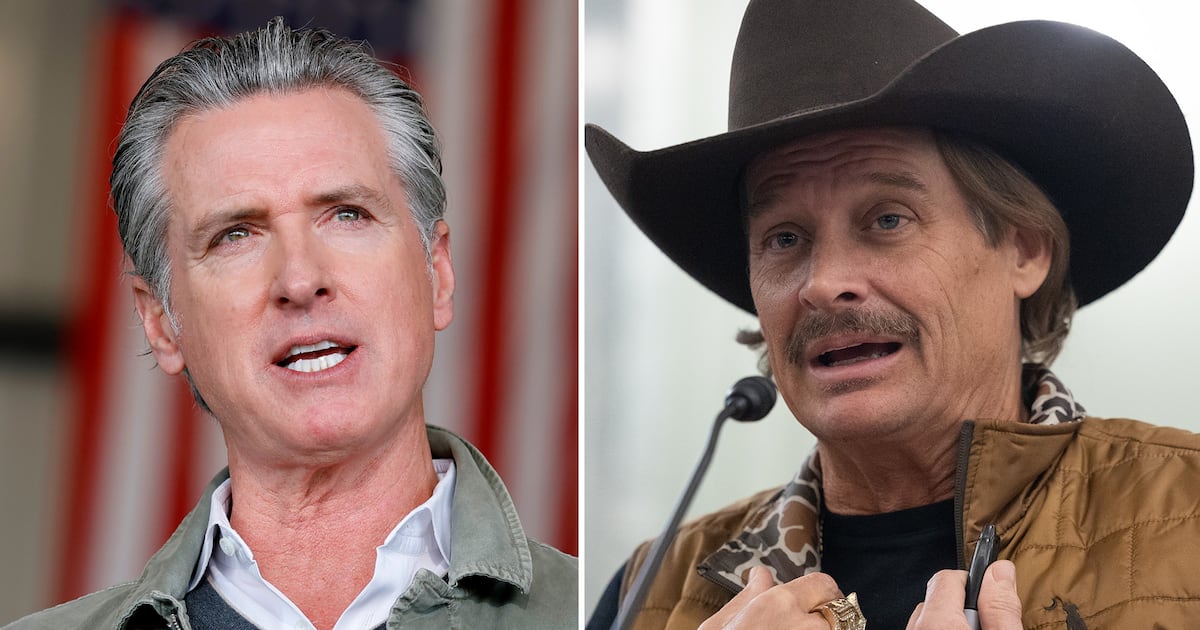
As Congress goes on vacation, tens of millions of dollars will be spent on TV commercials debating the overhaul bill. The Daily Beast's Benjamin Sarlin on which side is coming out on top.
Health-care reform will lower your premiums. No, it's a tax on small businesses. If you like your plan, you can keep it. Really, heath-care reform is a Trojan horse for Canadian-style health care. It's also about showing those insurance company villains who's the boss. And about closing the deficit. Actually, it’s going to explode the deficit. It will jump-start the economy. You're all missing the point, it's a secret plot to convince senior citizens to kill themselves.
The Democrats, said Paul Begala, “need to follow the lead of President Obama: Get their asses on offense and keep them there.”
Welcome to August! Usually the sleepiest month in terms of political news—Congress is gone until September—but this year, dozens of political players are bombarding Americans with competing health-care messages.
So far, this year has seen about $65 million in spending on health-care-related advertising, according to Evan Tracey, president of the Campaign Media Analysis Group. Tracey estimates groups could spend $8 million a week combined on TV, radio, print, and online advertising this month.
Given the cacophony, finding an effective voice can be difficult. It's an issue the Obama White House has struggled with, shifting messages to meet new criticisms of its plan. First, Obama’s emphasis was on how reform would lower costs, then came a series of sound bites and addresses designed to persuade insured Americans that they would benefit from the plan as well.
Lately, the message has shifted the focus from future benefits under health-care reform to the players who benefit from the system today, which White House pollsters believe is a winning dynamic. The president now frequently invokes the insurance industry as a boogeyman and has gone after Republicans like Sen. Jim DeMint (R-SC), who mused over the political benefits of defeating Obama's agenda (“It will break him”), by portraying them as self-interested obstructionists.
Outside groups backing health-care reform are also using the insurance industry as a foil. Recently, the Progressive Change Campaign Committee began running ads targeting moderate Democratic senators like Montana's Max Baucus and Nebraska's Ben Nelson, highlighting their donations from interest groups. Another group, Americans United for Change, is running ads highlighting insurance executives' hefty salaries.
Americans United for Change Mocks Salaries of Health Care Executives
According to Democratic strategist Paul Begala, keeping pressure on the anti-reform side is the White House's best hope at coming out of the August war with the necessary momentum to pass a bill.
“It is the Republican plan the Democrats should put on trial, the GOP status quo plan for rising premiums, rising co-pays, rising deductibles, rising costs, and declining coverage,” Begala told The Daily Beast. “They need to follow the lead of President Obama: Get their asses on offense and keep them there.”
Ironically, the hated health-insurance industry that House Speaker Nancy Pelosi recently labeled as “immoral” and “villains,” is running ads supporting certain components of a health-care bill, though they're working behind the scenes to scuttle a public-insurance option. But the most important ads might be the ones that AHIP, along with affected related interests like the pharmaceutical industry and the American Medical Association, are not running, given how successful their efforts were in blocking President Clinton's health plan in 1994.
“So far, the pharmaceuticals have been low key, the insurers have been low key, and the hospitals haven't really put a huge effort into this,” said Darrell M. West, vice president and director of governance studies at the Brookings Institute. “They're the people with the real money, so if they engaged in a negative way you'll see a lot more critical ads.”
And there are signs that their goodwill might not last forever. Recent proposals to tax expensive health-insurance premiums drew sharp responses from the insurance lobby and the House's movement toward creating a government insurance plan are also at odds with their interests. If they take off the gloves and aggressively target Obama's plan, it could lead to major escalation of the advertising wars.
In the meantime, the task of knocking down Obama's plan falls to the Republican National Committee and a host of conservative groups, who are being outspent significantly by the pro-reform crowd. Among these groups, the message has been varied with no clear line of attack. But with the policy details of health-care reform complex and, given the various pieces of legislation being discussed in Congress, sometimes contradictory, the campaigns often rely on emotional attacks more than anything else. Take for example, this recent RNC ad, which features images of vulnerable babies, frightened children, and grave warnings of Obama's “risky experiment”—all without any description of the plan whatsoever.
The RNC on Obama’s “Risky Experiment”
“They want to stir up emotion and make people afraid of the unknown,” West said. He suggested that Obama offer a clearer position on his health-care plan rather than deferring to Congress, thus reducing the confusion over the Democrats' policy that his opponents are currently exploiting.
According to Republican political consultant Fred Davis, who says he has been working on ads for groups opposed to the health-care plan, the wonky congressional debate is a key factor in Obama's recent slippage in some polls.
“The fact that it's 1,000-plus pages, that there are all these confusing details on something so important and something that would be very hard to undo—I think people are beginning to get a little bit of cold feet,” Davis said.
For opposition groups who do wade into the policy side of the debate, the size of the legislation makes it ripe with small individual items to highlight and exaggerate. Take, for example, the effectiveness of recent attacks led by conservative writer Betsy McCaughey, who also helped wreck Clinton's plan, on a provision in one bill that she says will authorize the government to pressure senior citizens into committing suicide. It's a bogus claim, but taps into voters' broader fears that they don't understand what's in the legislation. Meanwhile, the Family Research Council tries to put the debate on more familiar ground for conservatives, running ads like this “Harry and Louise” style throwback demanding antiabortion measures be included in the bill.
The Family Research Council Opposes “The Government Takeover of Health Care”
According to Davis, these individual item ads ultimately are less effective than ads taking a broader approach, such as attacking the overall process of how the bill's been constructed, that's less in the policy weeds. But he added that smaller groups running ads are free to experiment with more inventive attacks than their big-budget counterparts and may end up producing the one ad that catches fire.
“It's going to be an onslaught, a circle of messages,” Davis said. “The trick will be what stands out.”
Benjamin Sarlin is a reporter for The Daily Beast. He previously covered New York City politics for The New York Sun and has worked for talkingpointsmemo.com.






